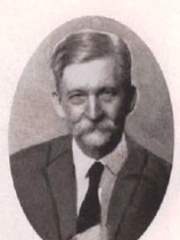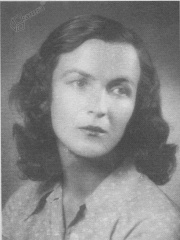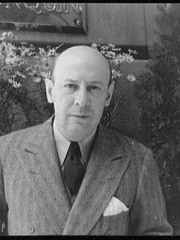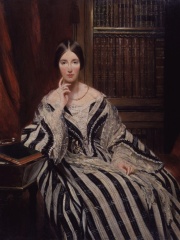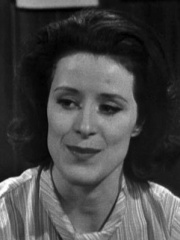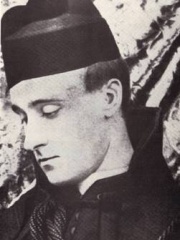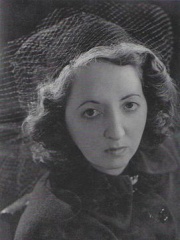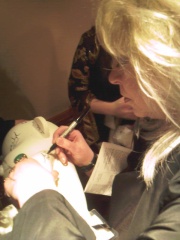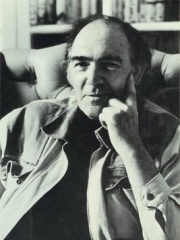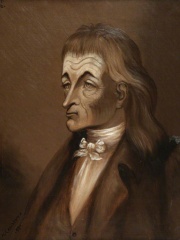Writer
Sarah Waters
1966 - today
EN.WIKIPEDIA PAGE VIEWS (PV)
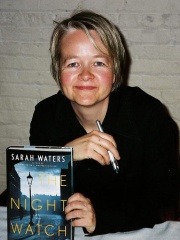
 Sarah Waters
Sarah Waters
Her biography is available in 36 different languages on Wikipedia (up from 32 in 2024). Sarah Waters is the 5,935th most popular writer (up from 6,012th in 2024), the 4,945th most popular biography from United Kingdom (down from 4,868th in 2019) and the 539th most popular British Writer.
Memorability Metrics
Page views of Sarah Waters by language
Among Writers
Among writers, Sarah Waters ranks 5,935 out of 7,302. Before her are David S. Goyer, Zoltán Ambrus, Kristina Brenk, Conrad Aiken, Ismat Chughtai, and Paulina Chiziane. After her are Archibald MacLeish, Michael Drayton, Marc Connelly, Giorgio Faletti, Theodore Roethke, and Jacques de Lacretelle.
Most Popular Writers in Wikipedia
Go to all RankingsDavid S. Goyer
1965 - Present
HPI: 52.91
Rank: 5,929
Zoltán Ambrus
1861 - 1932
HPI: 52.91
Rank: 5,930
Kristina Brenk
1911 - 2009
HPI: 52.90
Rank: 5,931
Conrad Aiken
1889 - 1973
HPI: 52.90
Rank: 5,932
Ismat Chughtai
1915 - 1991
HPI: 52.90
Rank: 5,933
Paulina Chiziane
1955 - Present
HPI: 52.90
Rank: 5,934
Sarah Waters
1966 - Present
HPI: 52.89
Rank: 5,935
Archibald MacLeish
1892 - 1982
HPI: 52.88
Rank: 5,936
Michael Drayton
1563 - 1631
HPI: 52.88
Rank: 5,937
Marc Connelly
1890 - 1980
HPI: 52.88
Rank: 5,938
Giorgio Faletti
1950 - 2014
HPI: 52.88
Rank: 5,939
Theodore Roethke
1908 - 1963
HPI: 52.88
Rank: 5,940
Jacques de Lacretelle
1888 - 1985
HPI: 52.87
Rank: 5,941
Contemporaries
Among people born in 1966, Sarah Waters ranks 331. Before her are Marina Berlusconi, Lucía Etxebarría, Zoran Savić, Tracii Guns, Luca Marchegiani, and Benito Archundia. After her are C. Thomas Howell, David Filo, Wataru Takagi, Frank Ferrer, Dieudonné M'bala M'bala, and Roopa Ganguly.
Others Born in 1966
Go to all RankingsMarina Berlusconi
BUSINESSPERSON
1966 - Present
HPI: 53.06
Rank: 325
Lucía Etxebarría
WRITER
1966 - Present
HPI: 53.04
Rank: 326
Zoran Savić
BASKETBALL PLAYER
1966 - Present
HPI: 53.03
Rank: 327
Tracii Guns
MUSICIAN
1966 - Present
HPI: 53.01
Rank: 328
Luca Marchegiani
SOCCER PLAYER
1966 - Present
HPI: 52.97
Rank: 329
Benito Archundia
BUSINESSPERSON
1966 - Present
HPI: 52.92
Rank: 330
Sarah Waters
WRITER
1966 - Present
HPI: 52.89
Rank: 331
C. Thomas Howell
ACTOR
1966 - Present
HPI: 52.88
Rank: 332
David Filo
BUSINESSPERSON
1966 - Present
HPI: 52.83
Rank: 333
Wataru Takagi
ACTOR
1966 - Present
HPI: 52.82
Rank: 334
Frank Ferrer
MUSICIAN
1966 - Present
HPI: 52.81
Rank: 335
Dieudonné M'bala M'bala
SOCIAL ACTIVIST
1966 - Present
HPI: 52.80
Rank: 336
Roopa Ganguly
ACTOR
1966 - Present
HPI: 52.77
Rank: 337
In United Kingdom
Among people born in United Kingdom, Sarah Waters ranks 4,946 out of NaN. Before her are O. T. Fagbenle (1980), Malcolm Muggeridge (1903), Derek Bailey (1930), Angela Burdett-Coutts, 1st Baroness Burdett-Coutts (1814), Ed Skrein (1983), and Judy Parfitt (1935). After her are Almroth Wright (1861), Phil Collen (1957), Gerald Scarfe (1936), John Claudius Loudon (1783), Clarence Kingsbury (1882), and Michael Drayton (1563).
Others born in United Kingdom
Go to all RankingsO. T. Fagbenle
ACTOR
1980 - Present
HPI: 52.91
Rank: 4,940
Malcolm Muggeridge
JOURNALIST
1903 - 1990
HPI: 52.91
Rank: 4,941
Derek Bailey
MUSICIAN
1930 - 2005
HPI: 52.90
Rank: 4,942
Angela Burdett-Coutts, 1st Baroness Burdett-Coutts
POLITICIAN
1814 - 1906
HPI: 52.90
Rank: 4,943
Ed Skrein
ACTOR
1983 - Present
HPI: 52.89
Rank: 4,944
Judy Parfitt
ACTOR
1935 - Present
HPI: 52.89
Rank: 4,945
Sarah Waters
WRITER
1966 - Present
HPI: 52.89
Rank: 4,946
Almroth Wright
PHYSICIAN
1861 - 1947
HPI: 52.89
Rank: 4,947
Phil Collen
MUSICIAN
1957 - Present
HPI: 52.88
Rank: 4,948
Gerald Scarfe
PAINTER
1936 - Present
HPI: 52.88
Rank: 4,949
John Claudius Loudon
BIOLOGIST
1783 - 1843
HPI: 52.88
Rank: 4,950
Clarence Kingsbury
CYCLIST
1882 - 1949
HPI: 52.88
Rank: 4,951
Michael Drayton
WRITER
1563 - 1631
HPI: 52.88
Rank: 4,952
Among Writers In United Kingdom
Among writers born in United Kingdom, Sarah Waters ranks 539. Before her are Frederick Rolfe (1860), Richard Hoggart (1918), Paula Yates (1959), Olivia Manning (1908), Jacqueline Wilson (1945), and David Storey (1933). After her are Michael Drayton (1563), Tanith Lee (1947), John Gardner (1926), Anthony Shaffer (1926), Iolo Morganwg (1747), and Dan Houser (1974).
Frederick Rolfe
1860 - 1913
HPI: 53.08
Rank: 533
Richard Hoggart
1918 - 2014
HPI: 53.07
Rank: 534
Paula Yates
1959 - 2000
HPI: 53.02
Rank: 535
Olivia Manning
1908 - 1980
HPI: 53.01
Rank: 536
Jacqueline Wilson
1945 - Present
HPI: 52.98
Rank: 537
David Storey
1933 - 2017
HPI: 52.94
Rank: 538
Sarah Waters
1966 - Present
HPI: 52.89
Rank: 539
Michael Drayton
1563 - 1631
HPI: 52.88
Rank: 540
Tanith Lee
1947 - 2015
HPI: 52.85
Rank: 541
John Gardner
1926 - 2007
HPI: 52.76
Rank: 542
Anthony Shaffer
1926 - 2001
HPI: 52.75
Rank: 543
Iolo Morganwg
1747 - 1826
HPI: 52.72
Rank: 544
Dan Houser
1974 - Present
HPI: 52.68
Rank: 545

